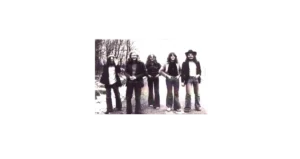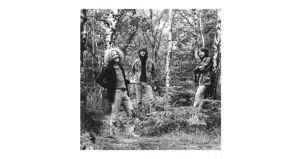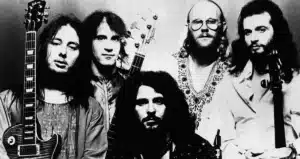Frank Zappa: The Genius, The Rebel, The Visionary
Frank Zappa was one of the most eccentric, brilliant, and uncompromising figures in the history of music. As a composer, guitarist, bandleader, satirist, and producer, Zappa defied categorization, blending rock, jazz, classical, avant-garde, and satire into a sound that was uniquely his own.
Throughout his over three-decade career, Zappa released more than 60 albums, many of which challenged musical conventions, industry norms, and societal hypocrisy. His fearless approach to music and relentless criticism of political and cultural issues made him not just an artist but a cultural force.
This article explores Zappa’s life, music, philosophy, and lasting influence.
Early Life and Musical Influences (1940 – 1964)
Frank Vincent Zappa was born on December 21, 1940, in Baltimore, Maryland. From an early age, he showed an obsession with sound, gravitating toward both rhythm and dissonance.
His influences were as unconventional as his music would become:
- Classical avant-garde composers like Edgard Varèse, Igor Stravinsky, and Anton Webern
- Blues and R&B artists like Johnny “Guitar” Watson and Howlin’ Wolf
- Doo-wop and jazz, which would heavily shape his sense of rhythm and melody
As a teenager, Zappa taught himself music theory, composition, and orchestration, eventually transitioning from drums to guitar, developing a style that was both bluesy and highly technical.
In the early 1960s, he began working as a studio engineer, experimenting with recording techniques that would become a major part of his artistic identity.
The Mothers of Invention and the Birth of an Icon (1964 – 1969)
By 1964, Zappa had formed a band called The Soul Giants, which soon evolved into The Mothers of Invention, a group that would become his main creative outlet.
Debut Album – Freak Out! (1966)
Zappa and The Mothers of Invention released their debut album, Freak Out!, in 1966, one of the very first double albums in rock history and one of the first true concept albums.
Key elements of Freak Out!:
- A blend of rock, doo-wop, blues, avant-garde, and social satire
- Orchestral arrangements mixed with psychedelic sounds
- Political and cultural commentary
Songs like Who Are the Brain Police? and Trouble Every Day showcased Zappa’s dark humor and biting social critiques.
The Late 60s and Early 70s: Expanding the Boundaries of Music
Over the next few years, Zappa led The Mothers of Invention through a series of groundbreaking albums that blurred the line between rock, jazz, and experimental composition.
Key Albums from This Period:
- Absolutely Free (1967) – More satirical and politically charged than Freak Out!, featuring complex time signatures and orchestral interludes
- We’re Only in It for the Money (1968) – A ruthless parody of hippie culture, mocking both commercialized rebellion and political hypocrisy
- Uncle Meat (1969) – A landmark album that fused jazz, classical music, and absurd humor
By 1970, Zappa dissolved The Mothers of Invention, shifting toward a solo career while still working with various musicians.
The Jazz-Rock Fusion Years (1970 – 1975)
While always a musical shape-shifter, the early 1970s saw Zappa embrace jazz-rock fusion, collaborating with musicians like George Duke, Jean-Luc Ponty, and Aynsley Dunbar.
Key Albums from This Period:
- Hot Rats (1969) – Considered one of the first jazz-rock fusion albums, featuring extended instrumental pieces like Peaches en Regalia and Willie the Pimp
- The Grand Wazoo (1972) – A large-scale jazz-fusion project with big band arrangements
- Over-Nite Sensation (1973) & Apostrophe (1974) – More accessible yet musically complex, featuring tracks like Montana and Don’t Eat the Yellow Snow
This era saw Zappa gain wider commercial success, yet he remained fiercely independent and refused to conform to mainstream expectations.
Political Commentary and Industry Critique (1976 – 1984)
Zappa was not just a musical innovator but also one of the most outspoken critics of censorship, political corruption, and corporate control in the music industry.
Some of his most politically charged albums include:
- Joe’s Garage (1979) – A dystopian rock opera that satirized censorship, religion, and authoritarianism
- Tinseltown Rebellion (1981) – A direct critique of the commercialization of rock music
- Ship Arriving Too Late to Save a Drowning Witch (1982) – Featuring Valley Girl, a song mocking Southern California’s teenage culture, ironically becoming one of his biggest hits
In 1985, Zappa became one of the leading voices against music censorship, testifying before the United States Senate against the PMRC (Parents Music Resource Center), which sought to put warning labels on albums with explicit content. His fiery speech made him a hero for artistic freedom and free speech.
Final Years and Legacy (1985 – 1993)
Even as the 1980s and 90s brought shifting musical landscapes, Zappa remained as prolific and experimental as ever. He:
- Composed and performed orchestral and electronic music
- Experimented with synclavier (early digital synthesis)
- Released albums like Jazz from Hell (1986), which won a Grammy Award
In 1991, he was diagnosed with prostate cancer, but even in his final years, he continued composing. He passed away on December 4, 1993, at the age of 52.
Why Frank Zappa Still Matters
🎼 Musical Innovation – Zappa pushed the boundaries of composition, production, and musical fusion, blending rock with jazz, classical, and avant-garde elements.
🎙 Fearless Satire – His sharp wit and no-holds-barred social commentary made him one of the most provocative artists of his time.
🎸 Virtuosic Guitar Work – His guitar solos were some of the most expressive and technically impressive in rock history.
📢 Free Speech Advocate – His stand against censorship and government interference in music left a lasting impact on artistic freedom.
📀 Unparalleled Productivity – Over 60 albums, covering nearly every musical genre imaginable, ensuring his music remains timeless and influential.
Conclusion: The Eternal Maverick of Music
Frank Zappa was not just a musician—he was a force of nature, an artist who refused to play by the rules, a satirist who exposed hypocrisy, and a composer who blurred the lines between genres.
His music remains challenging, provocative, and wildly creative, ensuring that Zappa’s legacy will live on for generations.
For those willing to explore his vast discography, every album offers something new, whether it’s a masterful guitar solo, a mind-bending composition, or a sharp critique of society.
“Without deviation from the norm, progress is not possible.” – Frank Zappa




